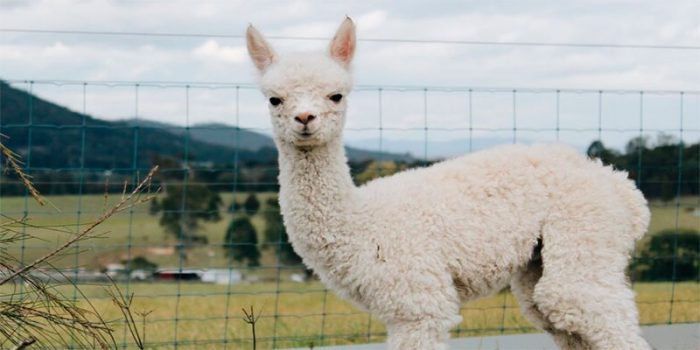
Keeping alpaca as a pet: This is what you should consider
Many people want an alpaca as a pet after the cute animals have caused a real Internet hype. However, there are some things to consider when keeping and caring for them. What that is, we explain to you here.
Alpacas – legal regulations for the attitude
A cuddly fur, huge googly eyes and a droll face – with this, you can actually only become a star. But like almost all starlets, alpacas also have some peculiarities and are therefore only suitable as pets under very special conditions.
Before you decide spontaneously for an alpaca as a WG partner, you should inquire exactly at your veterinary office about the legal requirements.
Alpacas are herd animals and suffer in solitary confinement. For this reason, keeping a single alpaca is prohibited under the Animal Welfare Act.
From their South American homeland, alpacas are used to a lot of freedom of movement and therefore need a lot of open space. For the species-appropriate keeping of two alpacas, you must provide at least a grazing area of 1,000 square meters. For each additional animal, at least 100 square meters of pasture must be added. However, these are only the legal minimums. You need much more space to keep the animals in a species-appropriate manner.
Alpacas are very fond of fresh air and tolerate sub-zero temperatures well. Nevertheless, the animals also need a stable. Preferably a stall, so that the small New World camels always have the free choice.
The stable must, of course, be cleaned daily and provided with fresh straw as a lying area. Otherwise, there is quickly the danger that parasites settle. In addition, the cuddly little animals should also feel comfortable.
Care and feeding of alpacas – important basic rules
The little South Americans may look very cuddly, but they are not at all. Alpacas do not appreciate being touched at all. Even among themselves, the animals usually have no physical contact. For this reason, alpacas are not suitable as pets for children. If you touch an alpaca, you should never touch it by the head, only by the neck.
As far as food is concerned, the little camels are very uncomplicated. Alpacas are pure vegetarians, more precisely even vegans, because they feed exclusively on plant food. They are largely satisfied with grass and hay. Occasionally, the diet can be expanded with a little Jerusalem artichoke or an unsweetened cereal. Very importantly, alpacas should not be fed fruit. This can cause stomach acidity and serious health problems, leading to death in the worst case.
Alpacas are ruminants whose teeth grow back throughout their lives. Since the grass in Germany is quite soft, there is hardly any natural abrasion of the teeth. These must therefore be constantly checked and shortened if necessary. In addition, it is essential to ensure that no malocclusion of the teeth develops.
Just like the teeth, the toenails of the alpacas must be checked regularly and shortened if necessary. On our soft floors, the animals usually do not walk them off on their own. If the toenails become too long, they will bend and tear, which is very painful for the alpaca.
Even if you are not interested in the alpaca’s wool, it is mandatory to shear the animals once a year. Otherwise, the long fur hinders the small camels and massively restricts their freedom of movement. In addition, not only annoying but also pathogenic parasites can quickly settle. Once you have the coveted wool, you may take the opportunity to discover a new hobby and spin the wool of alpacas on long winter evenings.
If you meet all the requirements and have considered the stepwell, you should still consider that the life expectancy of alpacas is about 25 years.
